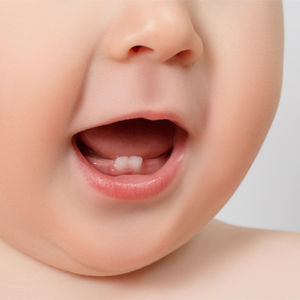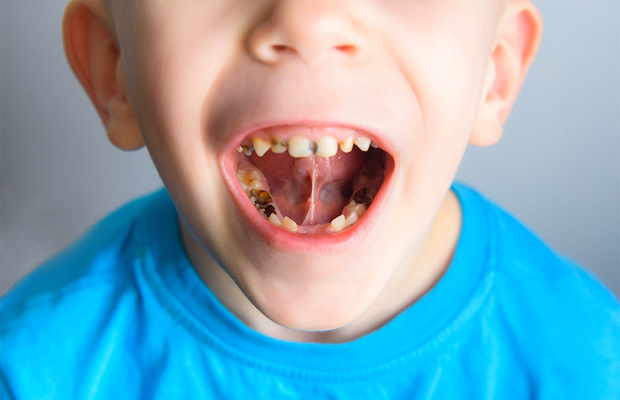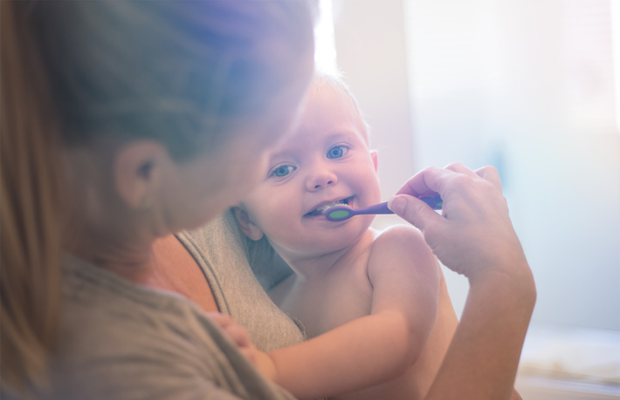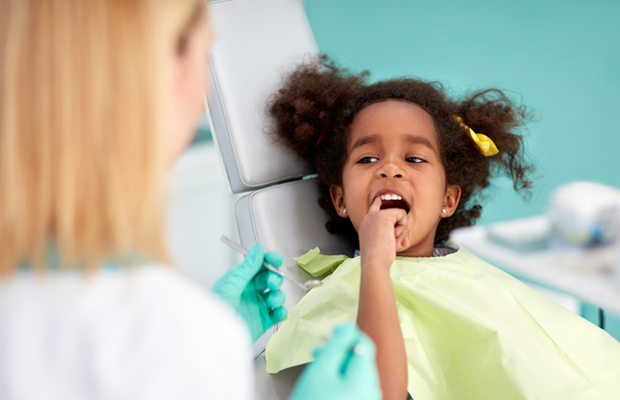
When I get asked by parents at what age they should bring their children to the dentist, my answer is: “As soon as possible or as soon as the first tooth comes through the gums!”
A child generally starts teething at about six months and should have all of his or her baby teeth by the age of two and a half. However, this can vary from one child to the next.
Types of teeth
There are 20 primary teeth (deciduous or milk teeth) – 10 top and 10 bottom ones – (just like fingers and toes, as I tell the kids).
They will have four incisors, two canines and two molars in each jaw.
Children usually start losing their incisors between 5 and 7 years of aged; the canines and molars have a much longer working life.
In many cases, the molars are only lost and replaced by the adult premolars between 9 and 12 years old.
Some children, especially boys, may head off to high school with a few deciduous molars still present. So, they’re not really “baby” teeth after all…
Decay in milk teeth
Decay (dental caries) of the molars (back teeth) is an all-too common problem in children.
By the age of 6, when kids start to shed their front teeth and the tooth fairy/mouse comes to visit, there are usually adult molars coming through right at the back, behind all the baby teeth.
The decay, which is caused by bacteria, can easily start to affect the child’s brand new adult teeth as well.

Parents will generally see decay on their child’s front teeth and seek advice but, in many cases, small, painless cavities in the back teeth go unnoticed until the decay causes the child pain.
Treating decay in young children can be extremely challenging and often the only way to repair or remove the teeth is under conscious sedation or general anaesthesia.
We don’t want children to lose their baby teeth too early as this can lead to several problems, including late arrival of the adult teeth, problems with appearance, chewing and speech and orthodontic problems.
Tips for parents
1. Sugar and sweets
Children love sweets! But as a parent, you need to control the frequency of their sugar intake. For example, instead of having sweets every day, encourage your child to save their sweets for the weekend.
Another tip is to avoid sweet treats like lollipops. Children will take a long time to finish a lollipop, so the duration of sugar exposure is very high.

Give your child something that they will eat quickly instead.
Sippy cups are better than bottles, as children will generally drink faster than from a bottle.
2. Brushing
Children tend to brush their front teeth, but not the back ones.
I always tell parents to brush their children’s teeth twice a day until they are at least 10 years old.
Brushing your child’s teeth does not mean you take their independence away, but, as your child gets a bit older, I recommend you still assist and supervise brushing. It makes a massive difference to the health of the teeth and can also be a good bonding time for parent and child.

Use a tiny amount of a children’s’ toothpaste (there are many on the market, which taste nice). Children will swallow some of the toothpaste, but this is not a problem if you are using age-appropriate toothpaste.
Make sure there are no snacks or drinks after they have brushed their teeth. If they get thirsty, only give them water.
3. Encourage dental visits
A child’s first visit to a dentist should be a pleasant one.
Many dental professionals encourage parents to bring their children in from a young age for a “play session”. All that happens during this session is they have a ride in the chair and let us “count their teeth”.

There are many dental practices that are excellent at paediatric dental care; some even specialise in it.
Your child will develop a trust relationship with all members of the dental team and not grow up with a fear of the dentist, which is so often the case otherwise.
Image credits: iStock




 Publications
Publications
 Partners
Partners











